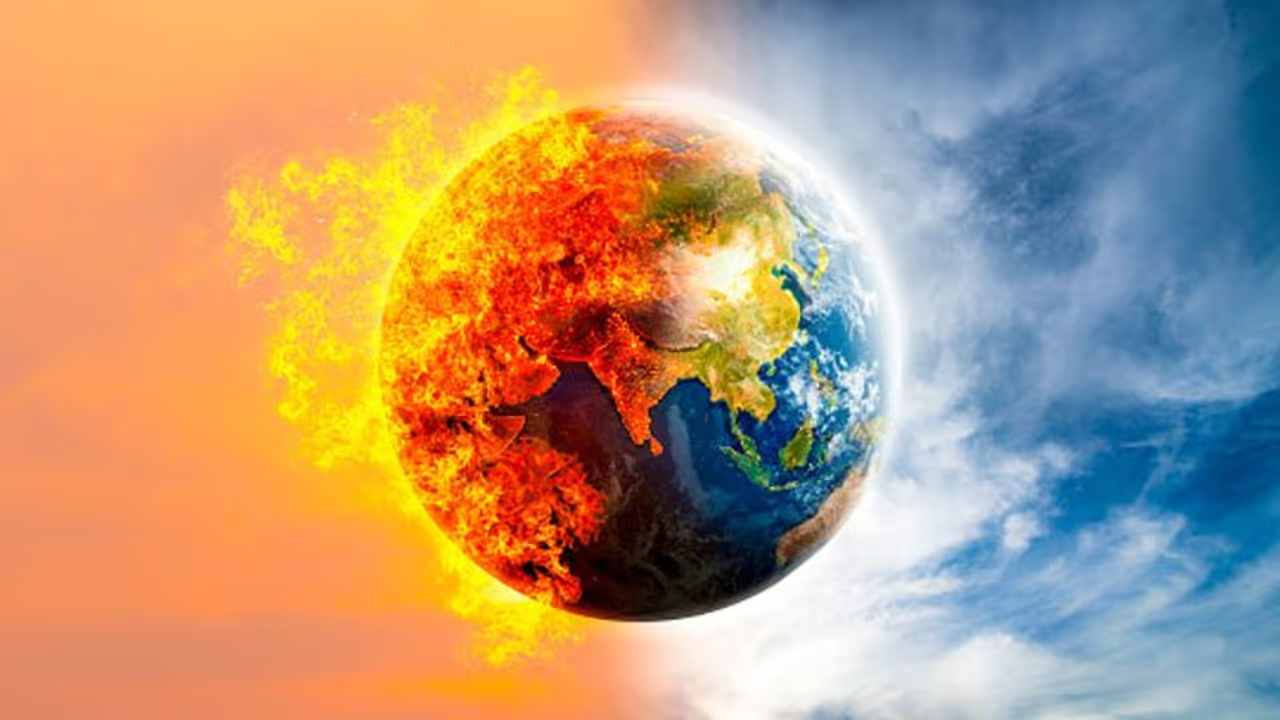Prominent scientists warn of an existential threat from climate change, citing record heat, extreme weather, and insufficient progress in emissions reduction.
Prominent scientists have issued a dire warning, emphasising that climate change represents an "existential threat" to life on Earth. They've assessed the extraordinary heat records and extreme weather events of this year, which have struck with more intensity than anticipated. With 2023 expected to be the hottest year on record, regions worldwide have faced deadly heatwaves and devastating floods, with some areas experiencing both extremes in quick succession.

"The truth is that we are shocked by the ferocity of the extreme weather events in 2023. We are afraid of the uncharted territory that we have now entered," said an international coalition of authors in a new report published in the journal BioScience.
Their stark assessment: "Life on planet Earth is under siege".
They've noted that humanity has made "minimal progress" in reducing planet-heating emissions, with major greenhouse gases at record levels and fossil fuel subsidies increasing.
This alarming assessment comes just a month before the UN COP28 climate negotiations set to occur in the United Arab Emirates. "We must shift our perspective on the climate emergency from being just an isolated environmental issue to a systemic, existential threat," the authors said.
The study, which examined 35 planetary "vital signs," found that 20 of these indicators reached record extremes this year.
Just a 1.2-degree Celsius increase in temperature above pre-industrial levels has triggered a range of disastrous consequences. The year has also seen the onset of a warming El Niño phenomenon. The European Union's Copernicus Climate Change Service reported the three months leading to September as the hottest period ever recorded, likely the warmest in about 120,000 years.
The report highlighted that numerous climate-related records in 2023 were shattered by "significant margins," with a particular focus on ocean temperatures. These oceans have absorbed nearly all the surplus heat resulting from human carbon pollution. Johan Rockstrom, co-author and director of the Potsdam Institute for Climate Impact Research, noted that recorded sea surface temperatures have reached unprecedented levels, leaving scientists puzzled as they strive to offer a complete explanation.
The potential consequences are substantial and include threats to marine life, coral reefs, and the intensification of large tropical storms, as outlined in the report.
People worldwide have faced heatwaves, droughts, and severe flooding. For instance, in Canada, record wildfires, partly linked to climate change, released more carbon dioxide than the country's total greenhouse gas emissions in 2021.
Before 2023, days with global average temperatures exceeding 1.5 degrees Celsius above pre-industrial levels were rare. By mid-September this year, there were already 38 such days.
While the more ambitious Paris Agreement target of limiting global warming to 1.5 degrees Celsius above pre-industrial levels is typically measured over decades, lead author William Ripple, a professor at Oregon State University, expressed concerns that we are entering a period where annual temperatures could reach or exceed this level.
Such a scenario risks triggering dangerous climate feedback loops and tipping points that could lead to irreversible changes in the climate. These tipping points might include the meltdown of ice sheets in Greenland and West Antarctica, extensive permafrost thawing, and widespread coral reef die-off.
Co-author Tim Lenton, director of the Global Systems Institute at the University of Exeter, emphasised that while avoiding some of these tipping points might no longer be feasible, slowing the damage is crucial. To achieve this, emissions must be drastically reduced, and temperature rise must be curbed. Lenton stressed that even small increments of temperature increase can have a significant impact, and there is still much at stake.
This includes the well-being of people who may face intolerable conditions in the coming decades due to factors such as severe heat, limited food availability, and extreme climate events. The report suggested that by the end of the century, three to six billion people could be "confined beyond the livable region," highlighting the urgency of addressing climate change.
"Many world leaders have generally continued to support business as usual, rather than enacting policies to curb climate change and sustain life on Earth," William Ripple told AFP. "We hope recent extreme weather events will help motivate policymakers at the upcoming COP28 climate conference to support massive cuts in fossil fuel emissions and increased funding for climate adaptation, especially in the world's most vulnerable regions."
